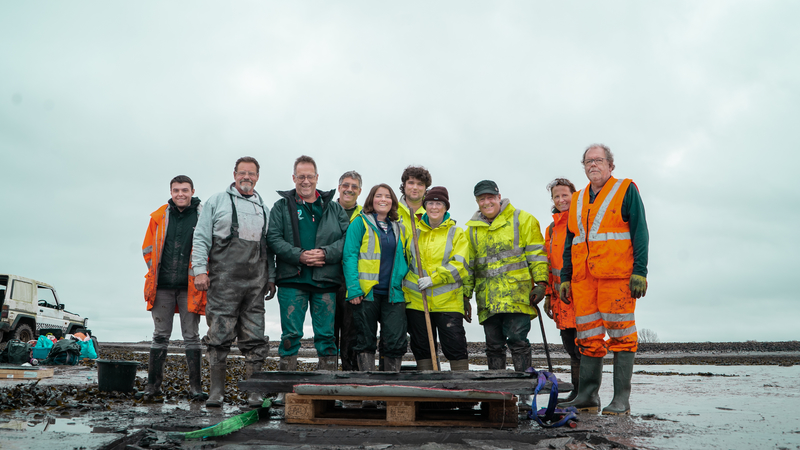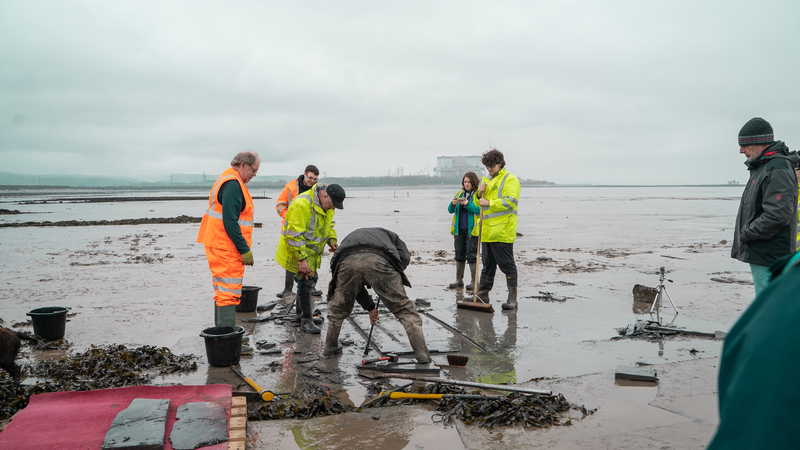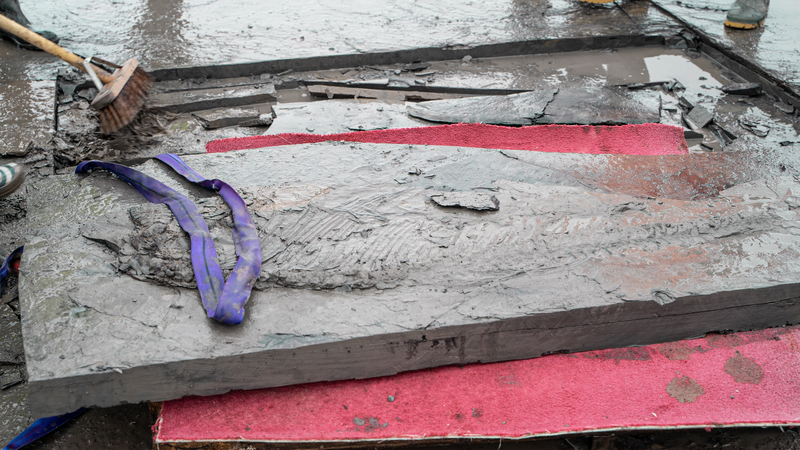“Operation Poppy”
Ichthyosaur Extraction
197-million-year-old Stolford Ichthyosaur Excavated for Conservation
‘Operation Poppy’ was a highly specialised and fast-moving project which saw the 197-million-year-old Stolford Ichthyosaur being extracted and delivered to the Somerset Heritage Centre ahead of conservation work. The now internationally famous specimen was safely extracted from the lower Jurassic shales of Bridgwater Bay National Nature Reserve by Geckoella’s team, led by Dr Andy King, on 27 December 2019.
The prehistoric fossil was discovered by amateur archaeologist Jon Gopsill when he was out walking his dogs just before Christmas (14 Dec.) The five-and-a-half foot long marine reptile had been exposed by recent storms. The fossil has now been dubbed ‘Poppy’ after one of Jon’s dogs who helped make the discovery. From the start, Jon wanted Poppy to be conserved and looked after for science. Natural England helped fund and carry out the extraction, the Environment Agency own the land, Somerset Heritage Trust took on the responsibility for the long term conservation, and all worked together to process the necessary permissions and paperwork in record time!
The extraction took place at the first opportunity the tides allowed after its unexpected discovery. The team of geological specialists from Geckoella had a four-hour window within which to extract the specimen from the Blue Lias rock. They used rock saws, hammers, chisels and crow bars to cut a single block around the fossil weighing approximately 160 kg and measuring 175 cm long x 85 cm wide x 9 cm deep.
The extraction was a tricky operation, with a narrow tidal window, but Poppy is now in Somerset Museum, undergoing preservation work in advance of public display and scientific research. New challenges lie ahead for a complex and delicate conservation process in the lab, with no guarantee of success, but, so far, all is looking good, and the delicate fossils are responding well.
This project illustrates Geckoella’s commitment to responsible fossil collecting and conservation on the Somerset coast. The opening of our workshop in the East Quay development, Watchet, Somerset in 2021 was an important extension of the services we can offer, now we can do even more of this and other specialist geological work in the future.



Dr Andy King, Co-Director and Palaeontologist with Geokella, who led the extraction said:
It’s always very exciting to see and have the chance to rescue such an impressive fossil ichthyosaur as ‘Poppy’. Given the tidal conditions at Stolford and very shaley nature of the rock surrounding the fossil, this particular extraction was certainly more challenging than others we’ve been involved with. Despite the skull not being preserved, ‘Poppy’ is otherwise remarkably complete – we’ll find out much more about the fossil and be able to assign it a scientific name once the preparation work is underway.
Although it’s not uncommon to find fragments of fossil ichthyosaur ribs or vertebrae, such complete specimens are relatively rare. Slightly older ichthyosaurs have been collected from West Somerset previously, but it’s still quite a feeling to realise that this marine reptile was swimming in the Jurassic seas covering Somerset nearly 200 million years ago whilst the dinosaurs were walking around on the land and pterosaurs were flying in the skies. We’re really delighted that this fossil was collected safely and responsibly and is going onto the museum – ‘Poppy’ is unquestionably a very popular ‘headless ichthyosaur’!
